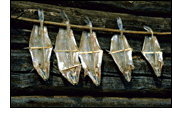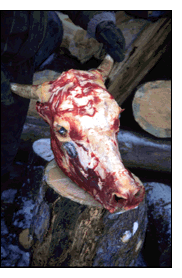 |
| Main page | Background | Villages | Revitalisation | Cultural tourism | Map | |
Lonkka |
 Lonkka
was a tiny little village northwest of Vuonninen close to the state
border. One of the routes for East-Karelian peddlars to Finland went
through this village. Lönnrot also used the road on two of his rune-collecting
trips: the fifth trip in 1834 and the seventh in 1836. Even on his
first trip to Lonkka, Lönnrot was aware that one of its inhabitants
was a gifted singer by the name of Martiska. Lönnrot managed to persuade
the man to sing for him for a total of three days. In the end, however,
Lönnrot was dissatisfied with his catch: Although Martiska had a vast
repertoire, he could barely sing any of his songs in their entirety. Lonkka
was a tiny little village northwest of Vuonninen close to the state
border. One of the routes for East-Karelian peddlars to Finland went
through this village. Lönnrot also used the road on two of his rune-collecting
trips: the fifth trip in 1834 and the seventh in 1836. Even on his
first trip to Lonkka, Lönnrot was aware that one of its inhabitants
was a gifted singer by the name of Martiska. Lönnrot managed to persuade
the man to sing for him for a total of three days. In the end, however,
Lönnrot was dissatisfied with his catch: Although Martiska had a vast
repertoire, he could barely sing any of his songs in their entirety.
If we consider the volume of poems he recited to folklore collectors,
Martiska was indeed one of Karelia's most accomplished singers.
His repertoire included many a rare poem that was unknown and unsung
in other nearby regions. These included Ruotuksen virsi (Ugly Herod),
Martiska was also a creative singer. He recited to Lönnrot a 167 line poem he composed about reindeer stealing which he had composed while serving a prison sentence for the very same crime. After three years in prison, he escaped, but was arrested and returned to prison. He died in prison in 1839 at the age of 71. Like all the inhabitants of Lonkka, Martiska belonged to the Karjalainen family. In fact, the village was formed when Martiska's father, Vaassila Karjalainen, moved from Finland to Vuonninen. In Vuonninen, Vaassila found himself a wife, but because the other villagers were hostile to him, he decided to move to a lonely tree-covered hill four kilometres from Vuonninen. According to legend, village was named after his horse, a mare with a bad hip. (In Finnish, lonkka means hip.) Martiska had two brothers, Hilippä and Simana. They were also good singers, but their poems were never captured in writing. Cajan, however, did manage to write down Hilippä's wife's songs when he and Lönnrot spent the night at Hilippä's "manor house" in the autumn of 1836. Simana's son was the father of Anni Lehtonen. Genetz, Meriläinen and Inha also managed to get Martiska's sons, Teppana and Maksima, to sing for them. The village of Lonkka never grew to a large size. In the year 1905, according to the census, the village was made up of 7 houses, but only six inhabitants. |
 Rajasota-runo (The Border War Poem), Ison härän-runo (The Great
Ox Poem), and Kuolonsanomat (News of Death). According to Kaukonen,
News of Death was one of the basic texts used by Lönnrot in creating
Book III, Poem 30, Kullervo's Departure, which later became an vital
addition to the Kullervo cycle in the new edition of the Kalevala.
Rajasota-runo (The Border War Poem), Ison härän-runo (The Great
Ox Poem), and Kuolonsanomat (News of Death). According to Kaukonen,
News of Death was one of the basic texts used by Lönnrot in creating
Book III, Poem 30, Kullervo's Departure, which later became an vital
addition to the Kullervo cycle in the new edition of the Kalevala.